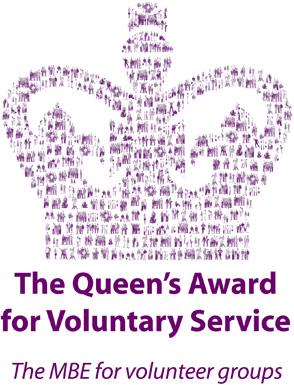My husband was diagnosed with a progressive terminal illness. If you are in a similar position, please read about my experience. The message I wish to convey is that my situation was manageable because of the expert support and guidance from the professionals and volunteers at Severn Hospice. I doubt I would have coped without knowing that they were always there for both my husband and myself.
Following our decision in 2006 to move from a large city to live a quieter ‘healthier’ life in Shropshire, my husband and I were enjoying our new lifestyle. At that point my husband had retired and we were planning to make the most of our time together once I had retired some years later. However, on 10th December 2011 an appointment with a neurologist turned our rose-tinted future into a living nightmare with no light at the end of a bleak black tunnel.
That day my husband was diagnosed with the rare condition known as Progressive Supranuclear Palsy (PSP). When delivering this devastating news to us the neurologist was clear – there is no treatment and no cure; the illness is progressive and terminal; should we have any plans for the future we were advised to bring these forward whilst my husband was still well enough to travel. With huge sadness I write that my husband died in July 2015. He was 71.
It is inappropriate here to dwell on the gruelling journey that my husband endured as this awful illness ravaged his mind and body but by the summer of 2012 it was becoming obvious that to leave him in the house on his own was unsafe and so I resigned from my job and was glad to become his full-time carer.
What did Severn Hospice do for us? Yes, I say ‘us’ deliberately to draw your attention to the fact that when my husband began attending the Day Hospice in June 2014, there was an unexpected and unsought bonus. It transpired that I was being cared for too, although it wasn’t obvious straight away to me because I didn’t believe that anyone would be able to understand and care for my husband except me, therefore, how was I going to be able to leave him and let others take the responsibility away from me? Also, how was my husband going to react to being amongst strangers?
I absolutely need not have worried about these issues. I vividly recall my husband’s first attendance at the Day Hospice. He was welcomed with genuine warmth, friendliness, and a reassuring professionalism. I watched as he settled into a comfy chair and was offered refreshments in a kind and gentle manner. It didn’t take long for me to see that my husband was in totally capable hands and that all of his needs would be met, no question. As for me, I was also given a warm welcome. The staff were keen to hear from me about our situation and my role within it. In no time at all they had my complete trust.
Leaving my husband there was the only five hours of the week when I can truly say that I had no anxieties at all about the care he was receiving. This was important because as the illness progressed it became challenging not only for my husband, but also for me as his carer, and those five hours became a valuable respite giving me time to benefit from a break from the responsibility and time to gather my thoughts.
How was I being cared for? In many ways is the answer. For instance, I was invited to attend the carers’ support group organised by the hospice. Each month a small group of carers would meet in the conservatory in a relaxed informal atmosphere. This meeting, just a couple of hours followed by a light lunch, became invaluable to me. I was able to air my worries about my caring situation amongst a group of people who also had caring responsibilities. We shared problems. Even if there wasn’t always a solution, just the opportunity to unload in a sympathetic environment was therapeutic in itself. The meeting was chaired by one of the hospice’s Social Workers and supported by senior nursing staff who were able to inform us carers of all sorts of things that were available to us and, of course, help us with problem solving. A guest speaker was always invited to attend, such as a physiotherapist; chaplain; psychologist. I would look forward to these meetings, not only as a time to share confidences but also a chance to receive expert guidance and benefit from the wisdom learnt through experience from those in similar circumstances. When I left the meetings I felt positively that it had been time well spent – this was crucial because my free time was limited and precious.
How else was I cared for? We were invited to see a consultant at the hospice. This enabled my husband and I to plan for the future and to discuss topics that at home would have been difficult and painful to bring up, but somehow, with a softly softly approach of the consultant we achieved a way to look ahead. Although upsetting, it was a relief to me to be able to be open with each other about subjects which had seemed insurmountable before.
It wasn’t until my husband’s life drew to a close that the significance of these discussions and ‘plans’ became fully apparent. Suffice to say that during a period when I was about to lose the dearest person in the world, emotions all over the place, exhausted and unable to think clearly, at least knowing that I was making decisions that had been specifically requested by my husband meant that I did not feel totally alone and at a loss. It was of some small comfort that I was carrying out his wishes. None of this would have been in place had it not been for the advance planning process and professionalism of the hospice.
Even now, nine months after losing my husband, I am still being cared for by the hospice. By this I mean I have been able to attend bereavement sessions. These are available to attend as a group or individual sessions with a bereavement support worker. This is helping me to adjust to a very different life which I am finding challenging, but with the constant love and support that I have always received from the hospice ever since our first introduction to the Day Hospice, I believe I am beginning to see a little light at the end of that black tunnel.













